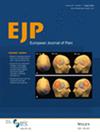IL18 rs360717 and rs187238 genetic variants are associated with migraine diagnosis
Abstract
Background
Migraine is a genetically determined disorder that predisposes to recurrent episodes of headache. Interleukin (IL)-18 is a pro-inflammatory cytokine that seems to play a role in migraine pathophysiology, and its genetic variants could potentially impact susceptibility to migraine.
Objective
To investigate the association between IL18 rs360717 and rs187238 genetic variants with migraine diagnosis and its clinical characteristics.
Methods
A case-control study was conducted with 152 people with migraine and 155 healthy controls, matched by sex, age, ethnicity, and body mass index. Clinical characteristics of migraine, as well as validated questionnaires regarding disability and impact of migraine, presence of allodynia, anxiety, depression, and hyperacusis were collected. Genotyping for IL18 rs360717 and rs187238 variants was performed using real-time polymerase chain reaction (qPCR) and TaqMan™ method.
Results
The IL18 rs360717A and rs187238G alleles were associated with increased chance of being diagnosed with migraine (OR = 1.53, 95%CI 1.05–2.24, p = 0.028 and OR = 1.46, 95%CI 1.00–2.14, p = 0.049, respectively). In the dominant model, the rs360717GA + AA genotypes were also associated with a higher chance of migraine than the GG genotype (OR = 1.69, 95%CI 1.05–2.73, p = 0.030). In women, in addition to the previous associations, there was also an effect of the variants on the chance of migraine in the codominant models and dominant models. Furthermore, among women, there was an influence on the prevalence of postdrome perception with rs360717GA + AA (OR = 3.04, 95%CI 1.10–8.42, p = 0.032) and rs187238CG + GG (OR = 2.97, 95%CI 1.08–8.21, p = 0.035).
Conclusion
IL18 rs360717 and rs187238 variants were associated with migraine diagnosis and postdrome symptoms, especially in women.
Significance
This study has demonstrated that IL18 rs360717 and rs187238 variants play a role in migraine, influencing the chance of being diagnosed with migraine, particularly among women. There are prospects that IL18 variants could be considered potential genetic biomarkers for migraine.

 求助内容:
求助内容: 应助结果提醒方式:
应助结果提醒方式:


